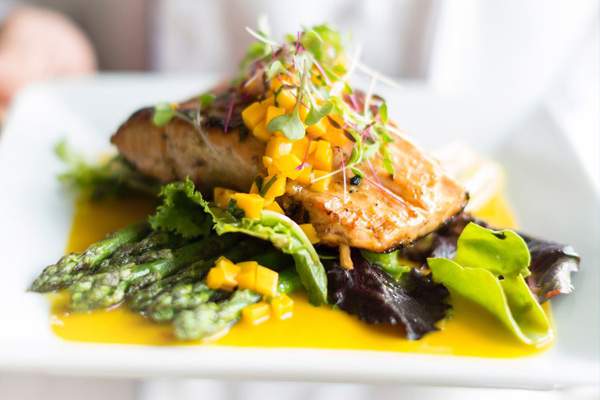Eating out in Houston

Most popular cuisines
Tex-Mex
Tex-Mex cuisine is an American cuisine that derives from the culinary creations of the Tejano people of Texas. It has spread from border states such as Texas and others in the Southwestern United States to the rest of the country.

Barbecue
Barbecue or barbeque is a term used with significant regional and national variations to describe various cooking methods that use live fire and smoke to cook the food..

Food in houston
n 1998, USA Today referred to Houston, Texas as "the dining-out capital of [the United States ]." Houstonians ate out at restaurants more often than residents of other American cities, and Houston restaurants have the second lowest average prices of restaurants of major cities. Tory Gattis, who published op-eds in the Houston Chronicle, said in 2005 that Houston has "a great restaurant scene." Gattis said that one factor contributing to the status is Houston's ethnic diversity, related to Houston's role as a major city of the energy industry, Houston's role as a port city, and Houston's proximity to Latin America and the Cajun areas of adjacent Louisiana. Gattis cited Houston's lack of zoning, which makes it easy for a business owner to start a restaurant as land is less expensive and there are fewer regulations and permitting rules. Gattis also cited Houston's freeway network, which, according to Gattis, puts restaurants within a 15-20 minute drive within the residences of most Houstonians during non-rush hour times.
:no_upscale()/cdn.vox-cdn.com/uploads/chorus_image/image/72274362/Chicken_with_salsa_verde___Jenn_Duncan_.0.jpg)
Food diversity
Houston scores well on the sheer variety of food, with 83 different kinds of cuisine available in the greater Houston area. What holds us back from cracking into the top 10 is the number of restaurants per square mile: 1.24. But, hey, that's going to happen when your metro area is the size of a small European country.As the nation's 7th most diverse city, it's perhaps not a surprise that at nearly every corner, one can find food from south of the border, across the Atlantic, and from neighboring southern states. Houston boasts a population that's filled with Black Americans, Latinos, Asian Americans, numerous immigrants, and other diverse communities. This diversity is reflected in some of its most famed restaurants, like The Breakfast Klub, UB Preserv, Ninfa's, and Tiger Noodle House. These restaurants are just some of many that carry the soul of Houston through food. James Beard Award-winning chef and cookbook author Chris Shepherd moved to Houston to shape his culinary career. He's given the city much of himself, particularly through his nonprofit Southern Smoke, but the city has also given him much in return.Some of Houston's most prominent cuisines align with the most populous communities. Irresistible Mexican food, vibrant Indian cuisine, earthy West African fare, flavorful Vietnamese food, and of course, hearty American cuisine reflect some of the groups that have made Houston the cultural mecca that it is. Even still, the city's food community extends well beyond these five cuisines. Indonesian restaurants, comforting pupuserias, Chinese tea shops, and Caribbean eateries are just a few of the additional cuisines and communities you can find in the city. To get the true Houston dining experience, which encompasses a truly global array of options, just visit.

Food availability
Houston food bank
The Houston Food Bank is a non-profit organization and the nation's largest food bank by distribution; providing access to 207 million nutritious meals in 18 counties in southeast Texas.Around 1 million people in the 18 southeast Texas counties served by Houston Food Bank are considered food insecure, meaning they lack consistent access to enough nutritious food to fuel a healthy life. In order to address this issue, the Houston Food Bank distributes food and other essentials to those in need through a network of more than 1,600 community partners. In addition, we also provide programs and services aimed at helping families achieve long-term stability including nutrition education, health management, and help in securing state-funded assistance.
Second Serving
Second Servings' mission is to alleviate hunger and reduce waste in the city by rescuing surplus food from businesses and conducting free same-day delivery to approved charitable meal sites. As the only prepared and perishable food rescue organization in Houston, we are growing exponentially and now reach approximately 200,000 people annually. We deliver high-quality, fresh food to over 140 Houston-area shelters, soup kitchens, low-income housing and other nonprofits from our generous donors, such as distributors, retailers, hotels, sports venues, etc. This perfectly edible food helps nourish abused women and children, at-risk youth, veterans, adults in recovery, disabled homeless seniors, low-income single adults and families and many others. Delivering the food at no cost allows our nonprofit partners to save a significant amount in their food budget, enabling them to serve more people, provide additional services and pay overhead costs.
Our food donor partners can recognize enhanced tax deductions, improved employee morale, a boost in their public image and reduced waste disposal fees. We make it easy for businesses to share their surplus unserved and unsold food, on a regular or as-needed basis. By using a "same day pick-up and delivery" model, we maximize the freshness of the food and minimize costs. This efficient and practical approach allows us to deliver $40 worth of food for every dollar we spend. Our four refrigerated vans pick up thousands of pounds of unwanted food every day and deliver it directly to the appropriate charities.



:no_upscale()/cdn.vox-cdn.com/uploads/chorus_image/image/72274362/Chicken_with_salsa_verde___Jenn_Duncan_.0.jpg)

